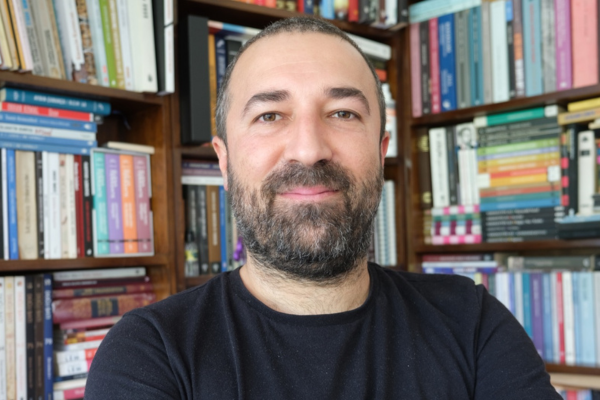"It must be ensured that no publisher feels isolated when facing pressure for exercising the freedom to publish."

© privat
The “Woche der Meinungsfreiheit” (Freedom of Expression Week) will take place between 3 (International Press Freedom Day) and 10 May (anniversary of the book burnings) 2024. This is an initiative put together by the Börsenverein des Deutschen Buchhandels, the recently founded Freedom of Expression Foundation and the Frankfurter Agenturallianz.
The aim of the campaign week is to provide important impetus for the socio-political debate in Germany and to emphasise the importance of freedom of expression and lively debate for a democratic society.
Every year, people from over 100 countries come together at Frankfurter Buchmesse. As part of the "Freedom of Expression Week", we focus on the perspectives of international members of the publishing industry.
What does freedom of expression mean to you personally? What do you think is the biggest challenge to freedom of expression? What can publishers from around the world do to promote freedom of expression?
In cooperation with the IPA (International Publishers Association), we put these questions to colleagues from India, Turkey, Spain, Italy, the UK, Canada and the USA and brought them together here.
Onur Öztürk, Editor in Chief, Ginko Kitap, Turkey
What does freedom of expression mean to you personally?
When I think of freedom of expression, I understand that individuals or groups should be able to freely express their views and opinions without facing any coercion, penalty, censorship, or intimidation. I consider it an essential principle of our profession since publishing is one of the most important pillars of freedom of expression. As a core part of the Universal Declaration of Human Rights, freedom of expression paves the way for the advancement of science, law, democracy, and justice.
What do you perceive as the greatest challenge to freedom of expression?
While the challenges may vary from country to country and have some specificities, I would define the greatest challenge in almost all of them as censorship and self-censorship. We live in a country where we experience how freedom of expression can become obsolete under conditions where it is not guaranteed or only exists on paper.
Therefore, beyond merely identifying these challenges from afar, we also witness them firsthand in our daily personal and professional lives. Particularly, advocating for ideas contrary to the prevailing political views held by the State has the potential to meet with oppression. The degree of this oppression varies depending on the perceived 'radicalism' of the expressed ideas.
Having previously served as a manager at a publishing house (Evrensel Basım Yayın) that had published 700 titles in 30 years and was shut down by a Decree-Law lacking legal basis, I can confidently state that arbitrariness and oppression pose the greatest challenges to freedom of expression in Turkey.
What can publishers around the world do to promote freedom of expression?
Publishers can promote freedom of expression to the extent that they can overcome any obstacles to their publications. Therefore, publishers must sometimes fight against censorship, investigations, lawsuits, and even economic barriers. They can overcome all of these obstacles through solidarity with both their fellow publishers and their readers.
At times, they can also promote freedom of expression by taking a unified stance to address sectoral issues with the professional associations and organizations they belong to. Ensuring that no publisher feels isolated when facing pressure for exercising the freedom to publish, and having other publishers unequivocally defend the exercise of this right, is perhaps one of the greatest incentives for promoting freedom of expression.
Turkey's publishing community has been in dire need of this unity and solidarity throughout its history and, of course, in present times.
About Onur Öztürk
Onur Öztürk worked as an editor and manager at Evrensel Basım Yayın between 2012 and 2016.
After the publishing house was shut down by a Decree-Law, he was among the founders of Ginko Kitap in 2017, where he continues to serve as the editor-in-chief.
About the Freedom of Expression Week
Now in its fourth year, the "Freedom of Expression Week" programme promotes the expression of opinion and lively debate for a democratic society. This year's programme includes more than 60 events throughout Germany.
Further information on the programme and the Freedom of Expression Week Charter can be found here: https://www.woche-der-meinungsfreiheit.de(opens in a new window) .
